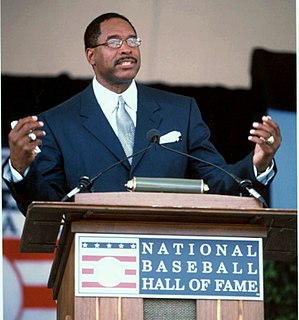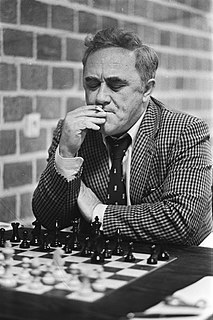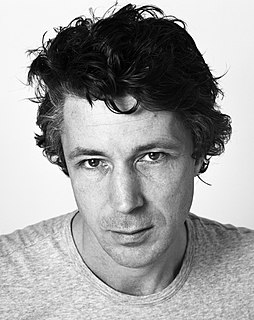A Quote by Paolo Giordano
All opening moves were the same, like in chess. You don't have to come up with anything new, there's no point, because you're both after the same thing anyway. The game soon finds its own way and it's only at that point that you need a strategy.
Related Quotes
Titled players appeared to be trotting out game after game in which the same old hoary opening sequences, memorized out to fifteen, twenty, or even more moves, were repeated endlessly. True novelties were becoming scarcer, and sometimes these 'opening' novelties didn't appear until well into the middlegame. (A master-level friend once proudly showed me a novelty he'd discovered at move twenty-seven of a very well-trodden chess opening, and it's said that even as far back as the 1950's Mikhail Botvinnik had some openings memorised past the thirtieth move).
It's a strange thing, how you can love somebody, how you can be all eaten up inside with needing them--and they simply don't need you. That's all there is to it, and neither of you can do anything about it. And they'll be the same way with someone else, and someone else will be the same way about you and it goes on and on--this desperate need--and only once in a rare million do the same two people need each other.
I also like to look at the dynamic that takes place between religion and science because, in a way, both are asking the same questions: Who are we? Where do we come from? Why are we here? Where are we going? The methodologies are diametrically opposed, but their motivation is the same; the wellspring is the same in both cases.
I love chess, and I didn't invent Fischerandom chess to destroy chess. I invented Fischerandom chess to keep chess going. Because I consider the old chess is dying, it really is dead. A lot of people have come up with other rules of chess-type games, with 10x8 boards, new pieces, and all kinds of things. I'm really not interested in that. I want to keep the old chess flavor. I want to keep the old chess game. But just making a change so the starting positions are mixed, so it's not degenerated down to memorisation and prearrangement like it is today.
Chess is a very positive way to exercise your mind. It makes you look at the whole picture...what are your options and what is the best thing to do? In football, you are mostly reacting from a defensive point of view...but you always want to be counterattacking...a similarity with chess strategy. Chess and offensive football are quite similar; you sacrifice something now to get something back later.
In general, I don't like game mechanics, I mean it's the idea you do the same things through different levels. I think, in my mind, it's an ideas I don't really like because I love to do different things and like to see the story moving on and I like to do different things and different scenes, not do the same thing over and over again. If it involves violence at some point fine, if it makes sense in the context. But violence for the sake of violence, it doesn't mean anything to me anymore.
For me, architects and film directors operate similarly. They are practical. As an architect, you know what you want in the conception of a space - but you still need a lot of people to help you out. You need an engineer, interior architects. But a film is the same - you have all these elements. But in terms of concept, it's always about time. When you approach a building, you need time to go from point A to B. Buildings are designed as a journey and films are the same, you have an opening that you come through, an angle you follow, maybe a disruption in space.
I've made a point of trying not to play the same part and of moving between theatre and film and TV. The idea is that by the time you come back, you have been away for a year, and people have forgotten you. If you like having time off, which I do, that's a good career strategy. Or at least, it's my strategy to keep my head together.






































